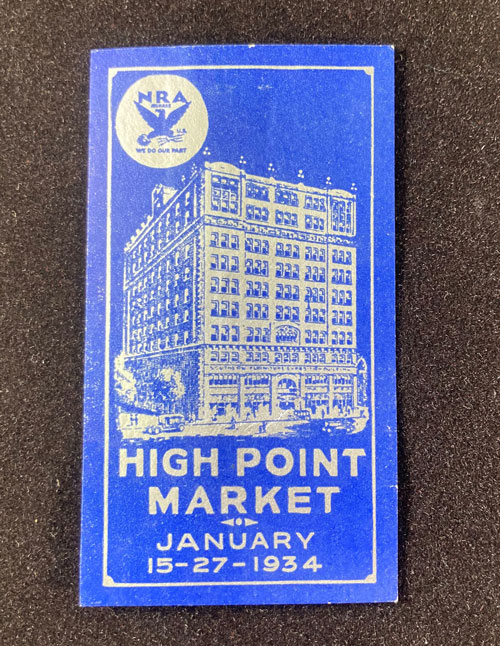“In 1919, the High Point Enterprise announced plans for the center, releasing a statement that didn’t mince words: ‘High Point aspires to become the foremost furniture market on this continent.’
“Though this goal might have seemed a bold claim at a time when Grand Rapids still held dominance as the country’s furniture capital, the manufacturers of High Point pulled it off: In 1920, the Southern Furniture Exposition Building opened for its first show, following a year-and-a-half-long, $1 million construction project. That year, attendance at the show numbered in the 700s, with visitors from 100 cities….
“Of course, even the savviest of business leaders couldn’t have protected the industry from what would happen less than a decade after the new center’s unveiling. With the economic devastation of the Great Depression, furniture sales fell to half their 1920s numbers….”
— From “How a Small Southern Town Became the Furniture Capital of America” by Hadley Keller in Architectural Digest (Oct. 13, 2017)
Although digital enlargement suggests a poster, this is actually a 3- by 1.5-inch advertising label known as a poster stamp. The blue eagle symbol in the corner indicates compliance with the wage and price policies set by the New Deal’s recently created National Recovery Administration.

